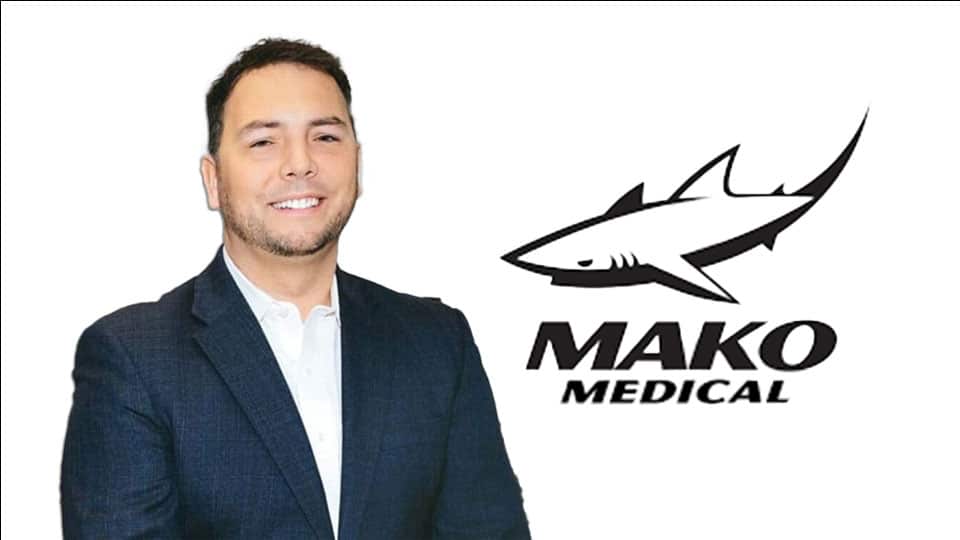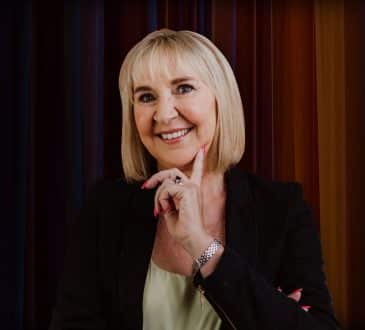Medical Trends 2025: Insights featuring Chad Price and Mako Medical

Setting the Stage for Medical Innovation: As 2025 approaches, the medical landscape is undergoing a transformation fueled by technology and a growing emphasis on patient-centric care. Testing and diagnostics—crucial pillars of modern healthcare—are evolving at a pace that promises not only faster results but also improved accessibility and precision. At the forefront of these innovations is Chad Price, whose leadership at Mako Medical Laboratories has turned a once-small startup into a driving force for change in diagnostics.
Based in North Carolina, Mako Medical, founded in 2014, has become a standout example of how technology, paired with a commitment to community care, can redefine an entire sector. While the company’s achievements are noteworthy, the broader trends reshaping the industry deserve equal attention. These advancements signal a future where diagnostics are smarter, faster, and accessible to all.
Personalization, AI, and Predictive Analytics: The New Era of Testing
One of the most groundbreaking shifts in healthcare diagnostics is the integration of artificial intelligence (AI) and predictive analytics. These technologies have ushered in a new era of precision, enabling healthcare providers to detect diseases earlier and create tailored care plans for each patient. With 70% of clinical decisions reliant on laboratory testing, such advancements are reshaping how care is delivered.
AI, in particular, has proven invaluable in diagnostic imaging and data analysis. By processing massive datasets with remarkable accuracy, it can identify patterns that human eyes might overlook. For example, AI algorithms in radiology are detecting anomalies in imaging scans faster and with greater precision than ever before. This accelerates diagnoses and improves outcomes for patients.
Predictive analytics, meanwhile, uses historical and real-time data to anticipate health risks and personalize treatment plans. This proactive approach minimizes complications and allows providers to focus on preventative measures rather than reactive treatments. Mako Medical, under the guidance of Chad Price, has been a leader in adopting these innovations. By investing in AI-driven tools and automated systems, the company has reduced turnaround times for critical tests, providing timely answers for both patients and healthcare professionals.
Beyond individual diagnostics, these technologies are playing a broader role in healthcare systems. By anticipating population-level trends, such as outbreaks or chronic disease surges, they enable public health officials to allocate resources more effectively. As a company deeply invested in community health, Mako Medical exemplifies how blending technology with value-based care can create meaningful, large-scale impact.
Remote and Accessible Testing: Breaking Barriers
The second wave of transformation in diagnostics centers on accessibility. In 2025, the focus isn’t just on innovating within laboratory walls but also on reaching patients where they are—whether that’s at home or in remote, underserved areas. Tools such as home testing kits, mobile diagnostic units, and wearable technology are eliminating traditional barriers to care.
Home testing kits, for instance, empower patients to collect samples in the comfort of their own homes, reducing the need for in-person visits. These kits often pair with telehealth platforms, allowing healthcare providers to interpret results remotely. This shift is particularly significant for individuals in rural or underserved communities, where access to healthcare facilities can be limited.
Mako Medical’s mobile testing units are a prime example of how innovation can drive accessibility. These units travel to underserved areas across North Carolina, offering essential diagnostic services to populations that might otherwise go without care. By addressing logistical challenges like transportation and distance, they ensure that everyone has access to timely and accurate testing.
Wearable devices, such as smartwatches and health monitors, are also playing a growing role. These tools provide continuous, real-time data on vital signs, enabling patients and providers to track health metrics like heart rate, glucose levels, and blood pressure. In 2025, the integration of these devices with healthcare systems is expected to become even more seamless, further enhancing patient care.
For Chad Price and Mako Medical, these innovations align with their commitment to value-based care—an approach that prioritizes quality and outcomes over the quantity of services provided. By bringing diagnostics directly to the patient, they are not only improving access but also reducing costs and fostering trust between providers and communities.
Ethics, Data Security, and the Road Ahead
As diagnostics evolve, so do the challenges that come with handling sensitive health data and navigating ethical dilemmas in cutting-edge medical technologies. By 2025, the exponential increase in health data—from wearable devices, genomic testing, and digital health records—promises immense benefits for personalized and predictive care. However, it also raises significant questions about privacy and security.
The healthcare industry faces an uphill battle in safeguarding this treasure trove of information. With cyberattacks targeting medical systems on the rise, patient data has become an appealing target for malicious actors. The average cost of a healthcare data breach in the U.S. hovers near $11 million, highlighting the need for urgent action. Strengthening cybersecurity protocols and adopting advanced encryption methods are no longer optional—they’re essential.
Companies like Mako Medical Laboratories, led by Chad Price, are setting examples of ethical and secure data management. By investing in robust digital infrastructure and prioritizing patient privacy, Mako demonstrates how innovation must be accompanied by responsibility. Their approach underscores the importance of balancing technological advances with the moral duty to protect patients’ most sensitive information.
The ethical considerations extend beyond data security. Emerging technologies like genomic editing and AI-driven diagnostics bring potential for incredible medical breakthroughs but also spark debates about fairness, accessibility, and unintended consequences. For example, who decides how genetic information should be used, and how do we prevent disparities in access to these life-changing tools? Mako Medical is working hard to make sure these new ideas match their goal of providing care to the community, especially in rural and poor areas of North Carolina.
Another challenge that needs addressing is the growing skills gap in the healthcare workforce. With advanced technologies becoming commonplace, the industry must train a new generation of professionals equipped to handle these tools. Mako Medical’s recent initiative, Mako University, aims to fill this void by educating healthcare workers on the latest diagnostic technologies and value-based care principles. These efforts not only prepare professionals for the future but also contribute to a more sustainable healthcare ecosystem.
The Future of Diagnostics: Trends to Watch
Looking ahead, diagnostics in 2025 will be shaped by trends that aim to bring care closer to the patient, improve outcomes, and optimize resources. Among the most promising innovations are genomics, telehealth, and the rise of Internet of Medical Things (IoMT) devices.
Genomic testing, once limited to specialized labs, is becoming increasingly mainstream. Advances in gene editing tools like CRISPR are opening doors to personalized medicine on a scale that was once unimaginable. By identifying genetic predispositions, healthcare providers can offer targeted therapies for conditions such as cancer or rare diseases. The ability to customize treatments at the molecular level enhances efficacy while minimizing side effects, representing a significant leap forward in patient care.
Telehealth and remote patient monitoring (RPM) will also continue to thrive. While the pandemic accelerated telehealth adoption, 2025 will see its integration into standard healthcare practices. From managing chronic illnesses to post-operative follow-ups, virtual consultations reduce the burden on healthcare systems and make care more convenient for patients. RPM, enabled by wearable devices, allows providers to track patients’ health in real time, facilitating early interventions and improving overall outcomes.
The Internet of Medical Things (IoMT) is another transformative trend. By connecting medical devices to the internet, IoMT creates an ecosystem where data flows seamlessly between patients, providers, and diagnostic systems. Examples include wearable ECG monitors, smart inhalers, and connected insulin pens. These devices are particularly impactful in managing chronic diseases, helping patients maintain control over their health while enabling providers to intervene when needed.
Chad Price’s leadership at Mako Medical reflects how these trends can be applied meaningfully. From investing in AI and automation to pioneering mobile diagnostics, Mako has positioned itself as a leader in embracing innovation responsibly. Their efforts serve as a blueprint for other healthcare providers seeking to navigate the complexities of modern diagnostics.
Shaping the Future of Care
As we look to 2025, it’s clear that medical testing and diagnostics are at a turning point. Emerging technologies such as AI, genomics, and IoMT are not just improving the way diseases are detected and treated—they are fundamentally changing how patients experience care. The emphasis is shifting toward value-based care, where quality, outcomes, and accessibility take precedence over quantity.
Companies like Mako Medical, under the leadership of Chad Price, highlight the power of combining cutting-edge innovation with a deep commitment to community. Their work in North Carolina, from mobile testing units to workforce education, demonstrates how diagnostics can be both advanced and equitable.
For healthcare providers, the takeaway is clear: embracing innovation must go hand in hand with building trust and ensuring ethical standards. Patients are not just recipients of care—they are partners in this evolving ecosystem. By working together to tackle challenges and seize opportunities, the industry can create a future where healthcare is smarter, faster, and more accessible for all.
Have you read?
Countries with the most (and least) personal space.
World’s Most (And Least) Religious Countries.
Best Countries to Invest In Travel, Tourism, and Hospitality.
Most Forested Countries In The World.
Bring the best of the CEOWORLD magazine's global journalism to audiences in the United States and around the world. - Add CEOWORLD magazine to your Google News feed.
Follow CEOWORLD magazine headlines on: Google News, LinkedIn, Twitter, and Facebook.
Copyright 2025 The CEOWORLD magazine. All rights reserved. This material (and any extract from it) must not be copied, redistributed or placed on any website, without CEOWORLD magazine' prior written consent. For media queries, please contact: info@ceoworld.biz








